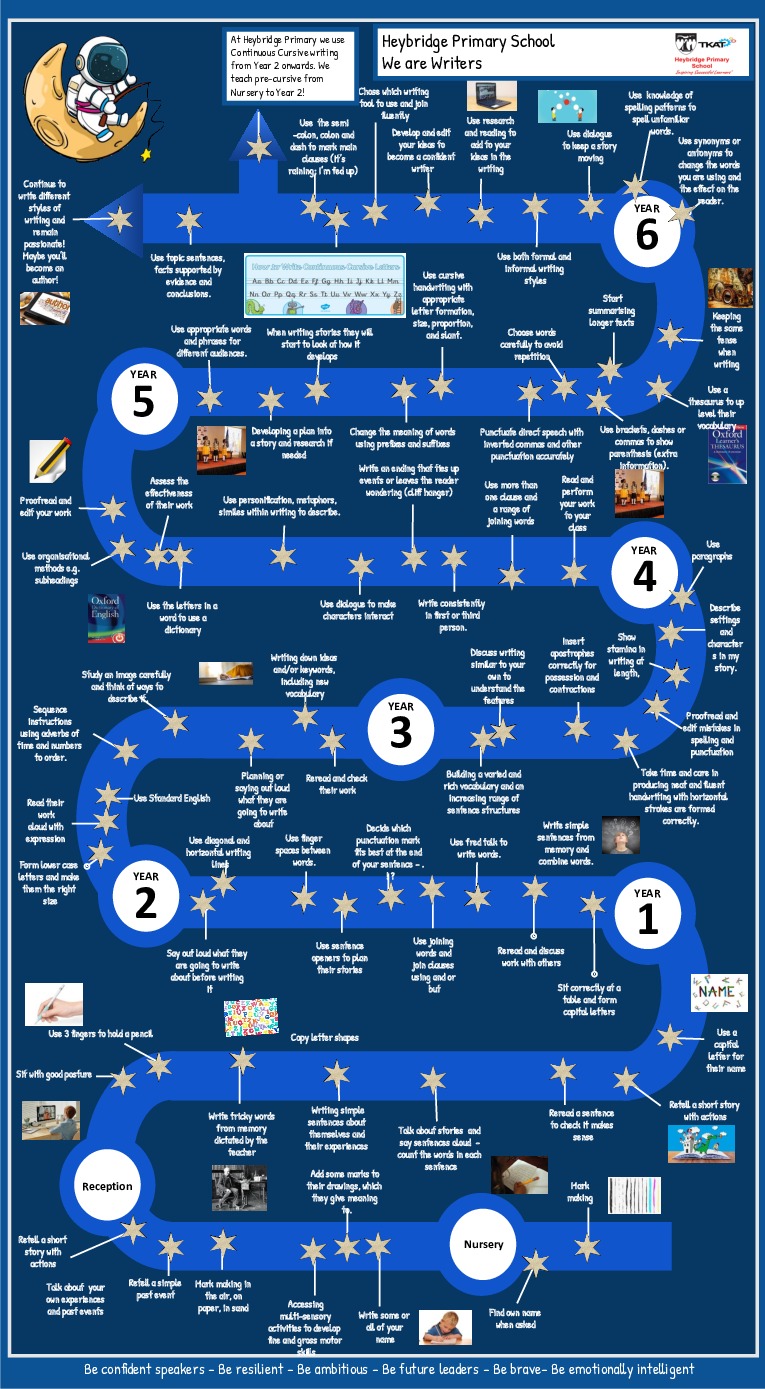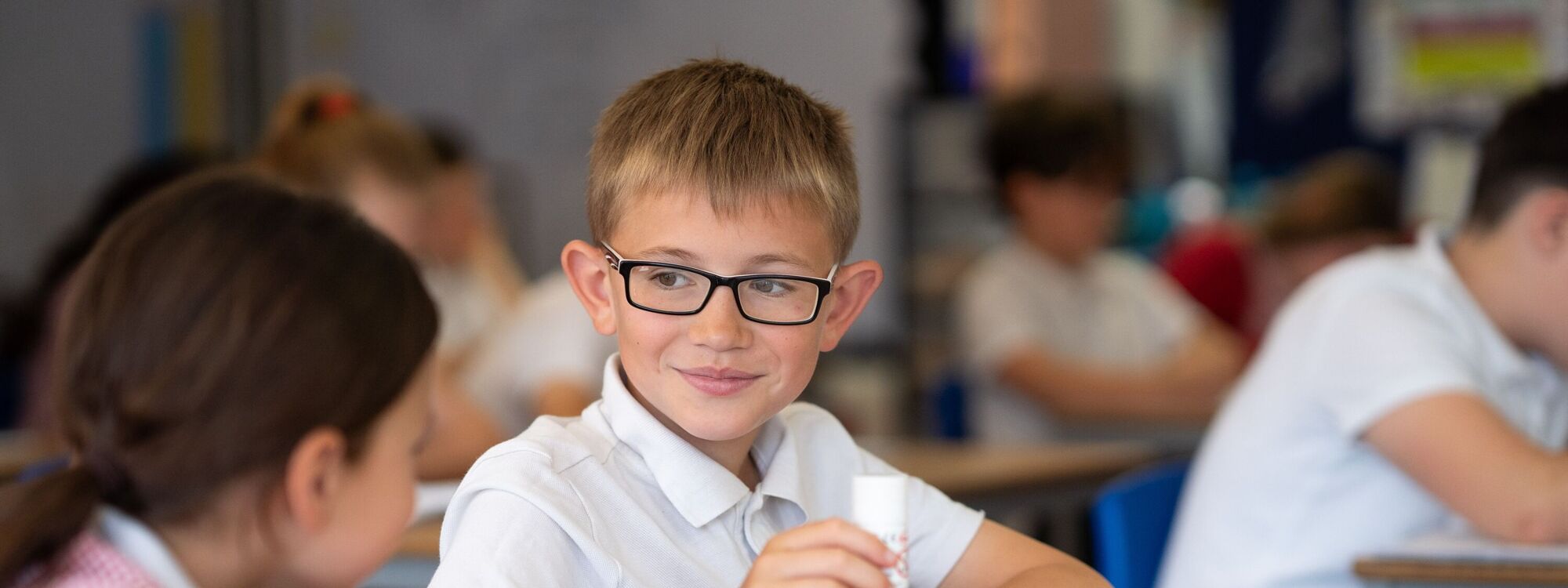Writing
At Heybridge, we are passionate about English as we believe it lies at the heart of the curriculum and opens the door for every other subject. We know that the link between writing and reading is key - good readers become good writers.
Through regular reading opportunities, we want children to build up an extensive and rich range of vocabulary that they can use in their own writing which also positively impacts their oracy and communication skills. The teaching of grammar and spelling is integrated into our teaching of writing, and where necessary, discrete sessions are taught. We use the Letter-Join handwriting guidance, along with Read, Write Inc. phonics and the national curriculum guidance to support our teaching.
We use the 'Talk for Writing' approach, developed by the author Pie Corbett, as we want all of our children to develop into reflective readers and creative writers. We think the Talk for Writing process helps the children to achieve this as they internalise the language structures needed to write powerfully and creatively. All of the writing at Heybridge is taught with a clear audience, purpose and format in mind. The more we can talk about stories, the better we can write stories.
Talk for Writing provides children with: an engaging ‘hook’ to draw them into their learning; opportunities to enjoy and share stories through a range of literature and a fun, interactive and rigorous structure to support the development of their writing.
There are three stages to the Talk for Writing approach: imitation, innovation and invention through independent application. In the initial imitation stage of Talk for Writing, children internalise a text off by heart using a text map, actions and expression. We feel that oracy is key as the children learn the oral patterns and key language before they begin to write and it helps them to meet the standards of spoken language.
During the second stage, innovation, teachers provide the children with workshops and shared writing opportunities to show the children how to craft writing using a playful approach with vocabulary and language structures. This helps them to choose the writer’s tools they want to use when it comes to the invention stage, supporting them to develop their own writer’s voice.
Invention is the final stage of the Talk for Writing process where the children apply what they have learnt throughout the unit and independently write their own piece based on the genre of writing.
The impact of the Talk for Writing approach has not only increased the children’s progress but also their enjoyment and engagement of writing.

Heybridge Writing Spine
TKAT-Writing-Progression-Document-Handwriting.pdf
